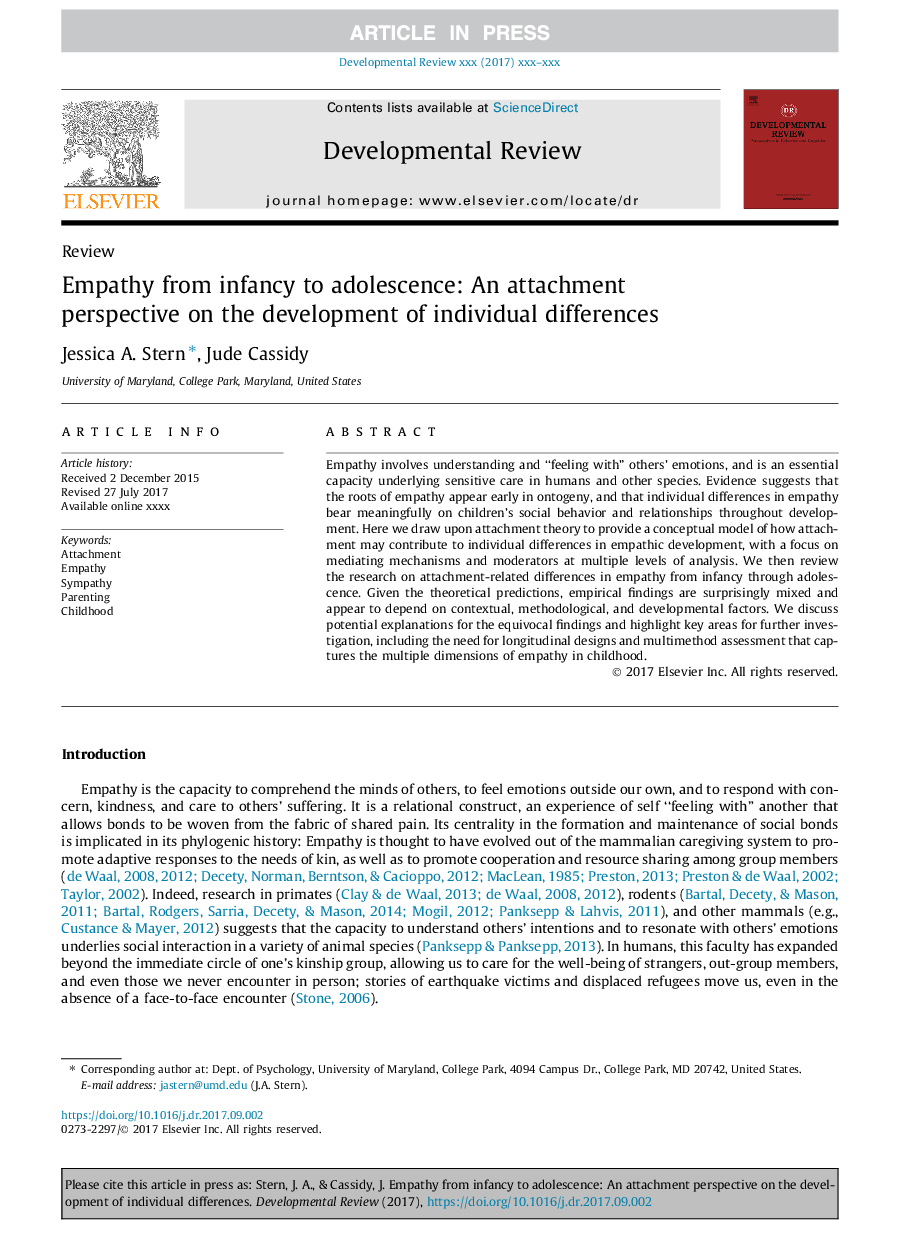| Article ID | Journal | Published Year | Pages | File Type |
|---|---|---|---|---|
| 6840388 | Developmental Review | 2018 | 22 Pages |
Abstract
Empathy involves understanding and “feeling with” others' emotions, and is an essential capacity underlying sensitive care in humans and other species. Evidence suggests that the roots of empathy appear early in ontogeny, and that individual differences in empathy bear meaningfully on children's social behavior and relationships throughout development. Here we draw upon attachment theory to provide a conceptual model of how attachment may contribute to individual differences in empathic development, with a focus on mediating mechanisms and moderators at multiple levels of analysis. We then review the research on attachment-related differences in empathy from infancy through adolescence. Given the theoretical predictions, empirical findings are surprisingly mixed and appear to depend on contextual, methodological, and developmental factors. We discuss potential explanations for the equivocal findings and highlight key areas for further investigation, including the need for longitudinal designs and multimethod assessment that captures the multiple dimensions of empathy in childhood.
Related Topics
Social Sciences and Humanities
Psychology
Developmental and Educational Psychology
Authors
Jessica A. Stern, Jude Cassidy,
